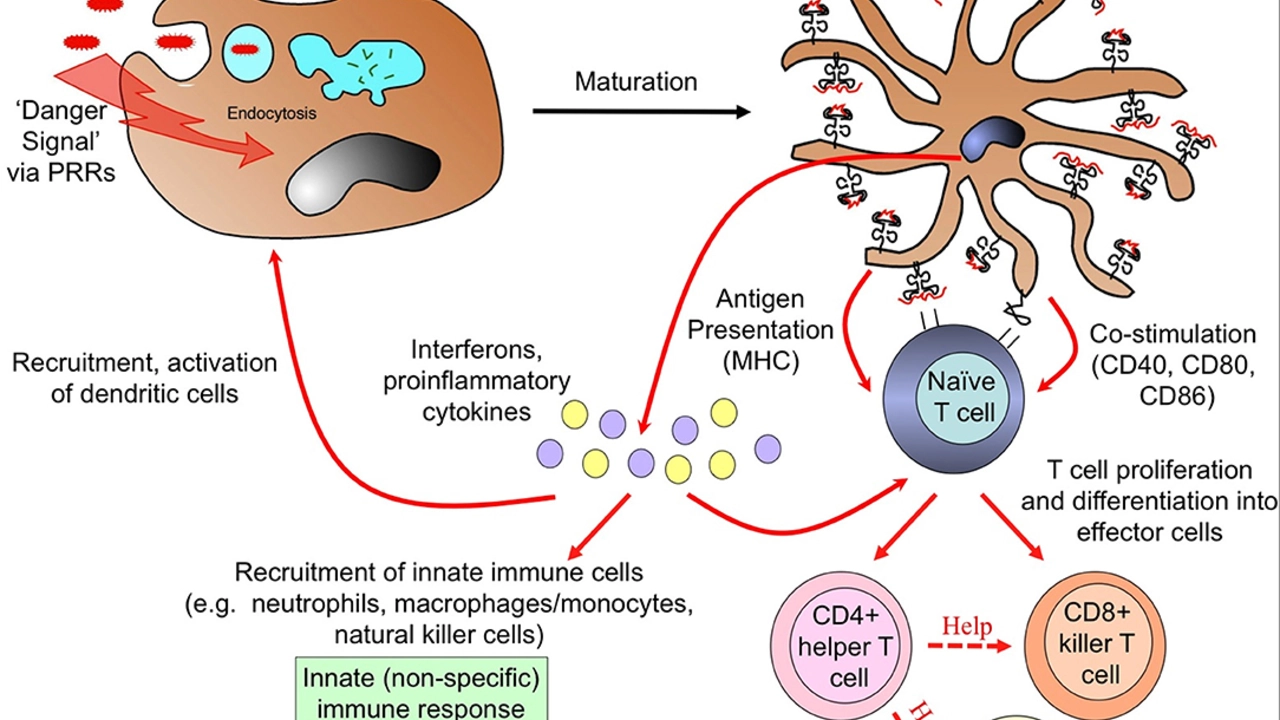Immune response
The immune response keeps you alive by spotting and dealing with germs, damaged cells, and foreign substances. It’s not one thing — it’s a team: innate defenses that act fast, and adaptive defenses that learn and remember. Knowing how this team works helps you make smarter choices about prevention, vaccines, supplements, and medicines.
How the immune response works
The innate system is your first wave. Physical barriers like skin and mucus stop many invaders. If something gets through, cells such as neutrophils and macrophages attack quickly and create inflammation to isolate the threat. The adaptive system arrives later and targets specific invaders. B cells make antibodies; T cells kill infected cells or help B cells make better antibodies. Vaccines train the adaptive system so it recognizes specific pathogens without you getting sick.
Signals called cytokines coordinate the whole process. When cytokines spike, you might feel fever, fatigue, or muscle aches — signs your immune system is active. Sometimes the response overshoots and causes problems: allergies, cytokine storms, or autoimmune disease, where the immune system attacks healthy tissue.
What affects your immune response & practical tips
Many everyday factors change how well your immune system works. Sleep shortage, poor diet, heavy alcohol use, and smoking lower defenses. Age, genetics, and chronic illness also matter. Certain drugs suppress or change immune activity — common examples include corticosteroids (like prednisolone), methotrexate, chemotherapy, and biologic drugs used for cancers or autoimmune disease. If you’re on these medicines, infections may be more serious and vaccinations or lab checks might be handled differently.
Simple actions make a measurable difference. Aim for 7–9 hours of sleep, eat enough protein and vegetables, and get outdoors for vitamin D or check levels with your doctor. Wash hands, stay up to date with recommended vaccines, and avoid smoking. If you take supplements, zinc and vitamin D can help in deficiency, but don’t exceed safe doses — tell your clinician about everything you take.
Watch for warning signs that need medical attention: high fever that won’t come down, infections that spread quickly, unexplained bruising or bleeding, swollen lymph nodes that grow fast, or new severe fatigue. Your doctor may order tests like a CBC, CRP, ESR, immunoglobulin levels, or vaccine titers to see how your immune system is doing.
If you have an autoimmune disease or take immune-suppressing drugs, coordinate with your healthcare team before stopping medications or starting new supplements. On MedixRX, you’ll find guides about steroid alternatives, cancer drugs that affect immunity, and safe use of supplements. Use that info to ask better questions at your next visit.
Your gut matters. Gut bacteria train immune cells and help prevent infections; long antibiotic courses can disrupt that balance and raise infection risk. Probiotics may help after antibiotics, but pick strains with evidence (Lactobacillus rhamnosus GG, Saccharomyces boulardii) and use them for limited time. If you plan travel vaccines or live vaccines while on immune-modifying drugs, talk to your specialist — timing can change vaccine safety and effectiveness too.
The Connection Between Calcipotriene and Immune System Function
Well, folks, let's dive into the fun world of health and science today! You might be wondering, "What on earth is Calcipotriene?" - and you're not alone, it's a tricky one! It's actually a synthetic Vitamin D3 derivative, mostly used in treating psoriasis. But here's the kicker - recent studies suggest this tongue-twister might also have a significant role in enhancing our immune system function. So next time you're feeling under the weather, maybe it's not chicken soup you need, but a little dose of Calcipotriene instead!

